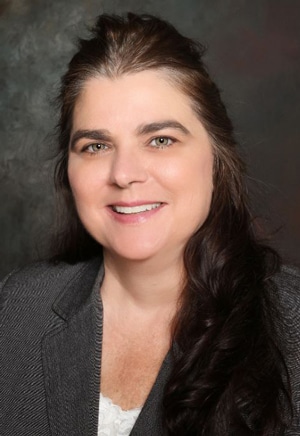 ayo888 / iStock / Getty Images Plus
ayo888 / iStock / Getty Images Plus
Leading the Way
From furthering the dental hygiene scope of practice to owning her own dental lab, Lori Hendrick, MS, CDA, CDT, RDH, PhD, is a true innovator.
 As a high-school student, Lori Hendrick, MS, CDA, CDT, RDH, PhD, looked forward to dental visits, fascinated by the goings-on of the busy practice. Her dentist fostered that interest and hired her as a dental assistant. She then took position with a local dental lab and became certified in ceramics. Her love of dentistry has continued throughout her career, which has ranged from private practice to dental hygiene education to business to advocacy.
As a high-school student, Lori Hendrick, MS, CDA, CDT, RDH, PhD, looked forward to dental visits, fascinated by the goings-on of the busy practice. Her dentist fostered that interest and hired her as a dental assistant. She then took position with a local dental lab and became certified in ceramics. Her love of dentistry has continued throughout her career, which has ranged from private practice to dental hygiene education to business to advocacy.
Hendrick is currently a faculty member in the Department of Dental Hygiene at Central Piedmont Community College in Charlotte, North Carolina, and in the Dental Assisting Program at Isothermal Community College in Spindale, North Carolina. With more than 20 years of experience as a dental lab technician, she owns and operates Athena Dental Solutions LLC, a dental laboratory and provider of dental continuing education. Hendrick is also the first dental hygienist certified to administer local anesthetic in North Carolina. Additionally, she is one of two dental hygienist representatives on the North Carolina Caring Dental Professionals Board of Directors, as well as the immediate past president of the North Carolina Dental Hygienists’ Association.
Hendrick spoke to Sunstar Ebrief about her latest accomplishment—adding local anesthesia administration to North Carolina’s scope of practice for dental hygienists.
1. How did you end up being the first dental hygienist to administer local anesthesia in North Carolina?
While I was completing my Master of Science in Dental Hygiene at Old Dominion University, we had an assignment where we had to research and present on expanding dental hygiene duties/functions. Being from North Carolina where local anesthetic was not allowed and had been proposed numerous times over the years, my choice was to research local anesthetic administration. I researched by survey, a sample of North Carolina dentists and hygienists to see how local administration was being perceived and embraced by the dental community. I was amazed by the positive responses—more than 85% of dentists surveyed showed that they embraced hygienists administering local anesthetics.
The final part of this assignment was to present our findings to an organized dental group in our state. At the time, the hygiene association did not want to move on local anesthetic legislation, my husband (a dentist) was able to get me before the Board of Trustees at the North Carolina Dental Society (NCDS) to present. The support was tremendous and NCDS quickly formed a task force to review the legislation I proposed and receive input from our state dental schools and other stakeholders. During the COVID lockdown, we meet at least once a week and our legislation was introduced in March of 2021, made cross-over in both the State House and Senate. On July 29, 2021, Governor Cooper signed our legislation into law with an effective date of November 1, 2021.
Once we knew what the final educational requirements would be, I traveled to Florida and received my training from Dr. Sam Low at the University of Florida. I then submitted my documentation to the NC State Board of Dental Examiners and on November 1, received notification from the board that my certification was approved. We immediately implemented it into our office that day and it has been a game changer. Recently when I had a member of the dental board as a guest speaker with my Professional Development class at Central Piedmont Community College, he told the class that their instructor was the first NC licensed hygienist certified to administer local anesthetics.
2. Why is it important for dental hygienists to be able to administer anesthesia?
Actually, this is twofold—not only does it allow us to administer anesthetics to our patients who need it for pain control while performing root planing and scaling, it also can help keep dentists engaged in providing restorative services, increasing dental office productivity. Many offices for which we have trained hygienists to administer local anesthetic are encouraging their staff to obtain certification to assist with administering anesthetic to restorative patients. This may become increasingly important as insurance companies continue to reduce reimbursements. It allows us to be more productive while serving more patients. This may be an especially critical piece of the puzzle to provide access in rural areas where there are a limited number of dental providers.
3. What advice would you give dental hygienists practicing in states where this is still not allowed?
The main piece of advice I would offer to dental hygienists practicing in the four remaining states is to approach the dental community and form an alliance. Working with organized professional associations presents a unified voice when you have to go through legislation to get approval for expanding functions. It is often difficult if not impossible to institute change as an individual—a piece of advice offered to me while I was performing my research by our Speaker of the House of the North Carolina House of Representatives.

